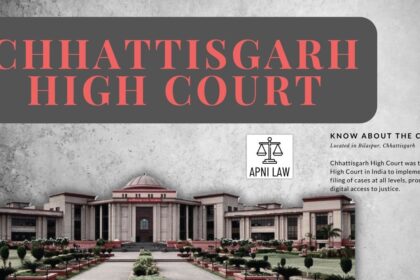Introduction
When children neglect or refuse to care for their elderly parents, it can lead to legal consequences under the Maintenance and Welfare of Parents and Senior Citizens Act, 2007. Sections 5, 9, and 10 of this Act empower senior citizens to claim maintenance and protection. These provisions ensure that parents are not left destitute or uncared for in their old age.
In this article, we explain what the law says, the legal process involved, and the consequences children may face for failing in their duty.
How To Apply for Maintenance Under Section 5 Of the Senior Citizens Act?
- A senior citizen or parent can apply directly.
- If they are incapable, an authorized person or organization can apply on their behalf.
- The Tribunal can also take action on its own (suo motu).
Explanation: “Organization” includes any voluntary association registered under the Societies Registration Act, 1860 or any other applicable law.
Interim Maintenance Orders
- The Tribunal can order children or relatives to pay interim monthly maintenance during the proceedings.
- Payments must go directly to the senior citizen or parent as directed.
Inquiry for Maintenance Amount
- Upon receiving the application, the Tribunal must notify the children or relatives.
- The Tribunal will hold an inquiry and decide the maintenance amount after hearing both parties.
Time Limit for Disposal
- The Tribunal must dispose of the application within 90 days of serving notice.
- It may extend the time once by 30 days in exceptional cases with written reasons.
Filing Against Multiple Persons
- Maintenance applications can be filed against one or more liable persons.
- A respondent can also add others who share responsibility.
- If one liable person dies, others remain responsible for continuing payments.
Effective Date of Payment
- The Tribunal can order payments from the date of the order or from the application date.
Penalty for Non-compliance
If the children or relatives fail to pay without valid reason:
- The Tribunal can issue a warrant to recover the due amount like a fine.
- It can also sentence the defaulter to up to 1 month’s imprisonment or until payment, whichever is earlier.
- Note: The application for recovery must be made within 3 months of the due date.
What Is The Order for Maintenance Under Section 9 Of Senior Citizens Act?
- Tribunal’s Power to Order Maintenance (Section 5). If children or relatives neglect or refuse to maintain a dependent senior citizen, the Tribunal can intervene.
- It can order a monthly allowance as it deems fit.
- Payments must be made directly to the senior citizen as per the Tribunal’s direction.
- Maximum Allowance.
The State Government will prescribe the maximum monthly maintenance.
- It cannot exceed Rs. 10,000 per month.
How Does Alteration in Maintenance Allowance Work Under Section 10 Of Senior Citizens Act?
- Change in Circumstances or Misrepresentation (Section 7). The Tribunal can alter the maintenance amount if:
- There’s misrepresentation or a mistake of fact.
- There’s a change in the circumstances of the payer or recipient.
- Civil Court Decisions
If a Civil Court’s decision affects the maintenance order:
- The Tribunal must either cancel or modify its order accordingly.
Recent Case Laws
Orissa High Court Clarifies Eligibility for Maintenance
- The Orissa High Court emphasized that merely being a senior citizen does not automatically entitle one to maintenance under the Act.
- The claimant must demonstrate an inability to maintain themselves from their own earnings or property.
- In a specific case, a 69-year-old father was granted ₹5,000 monthly maintenance after proving his son’s neglect and his own financial incapacity.
Conclusion
Sections 9 and 10 of the Senior Citizens Act, 2007, play a crucial role in protecting the rights of elderly individuals.
Section 9 empowers Tribunals to grant monthly maintenance to senior citizens when their children or relatives neglect them. Section 10 allows for changes in maintenance orders based on shifting circumstances, misrepresentation, or court decisions. These provisions ensure that senior citizens receive timely financial support and maintain a life of dignity. Courts have consistently upheld the spirit of the law by reinforcing that the right to maintenance depends on need and fairness, not mere age or relationship.
In conclusion, these sections offer a legal framework that supports elderly care, promotes family responsibility, and adapts to changing situations. This makes the Act a strong safeguard for senior citizens across India.








